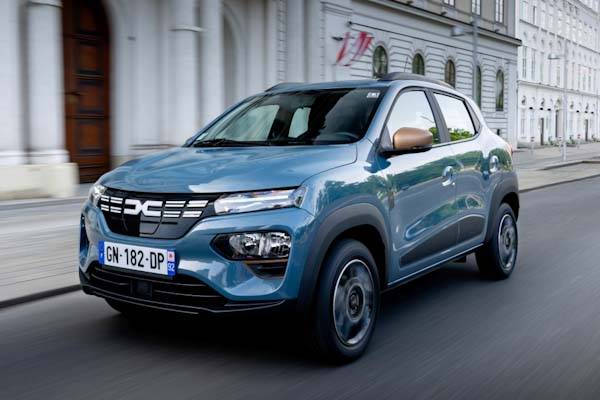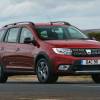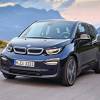
RAC sale – up to 33% off*
• Roadside cover from £5.29 a month†
• We get to most breakdowns in 60 mins or less
• Our patrols fix 4/5 breakdowns on the spot

Dacia's Spring resets the value proposition for EV buyers on a budget. Jonathan Crouch reports
Ten Second Review
Dacia shakes up the affordable end of the EV market with this car, the Spring. The driving range is modest, but then so also is the price - this is the cheapest electric car on sale if you discount the Citroen Ami, which isn't a car. This Romanian contender is fun to look at - and to drive. Here at last is an EV small hatch more comparably priced to a combustion model.
Background
Electric cars are too expensive. That's the bottom line. Despite continued industry promises, we're still waiting for the required wave of small, affordable EVs priced more comparably with fossil-fuelled runabouts. If any car maker was going to provide such a thing, you'd hope it might be Dacia, Renault's Romanian budget brand, who shook up the market a decade ago by offering UK folk a new family hatchback (the Sandero) for under £6,000. In fact, they already have, launching Europe's cheapest electric car, the Spring, back in 2021.
Early versions of that model never appeared here, but Dacia is taking the opportunity provided by this model line's facelift to introduce it for the British market. The Spring is assembled in China as part of a joint venture between the Nissen Renault Alliance and the DongFeng Motor Group. And over 120,000 have been sold across Europe so far. So what might be its prospects here? Let's take a look.
Driving Experience
Our market gets the gutsier version of the Spring with a 64bhp electric motor (other countries can also choose a lesser 44bhp variant). The battery size on offer is always the same though, with just 26.8kWh of usable capacity available, a modest figure that means just 137 miles of range can be had. But you won't be choosing a Spring for long journeys - or for performance; our 64bhp variant makes 62mph in just under 14s, though because the first 30mph is dispatched so quickly, it feels faster than that, helped by a light kerb weight of just under a tonne.
The tight turning circle, super-light steering and the small exterior size make the Spring a great city car. Predictably, it's less comfortable on the motorway, where it can get blown about by HGVs and going above 70mph takes quite a bit of driver determination. Best to keep this Dacia in its comfort zone, zipping about the suburbs, where it's really quite a fun companion.
Design and Build
Visually, this is the kind of small runabout that European customers tend to want these days, an A-segment small hatch with various Crossover cues (chunky wheel arches and a slightly higher ride height). If you want some perspective on size, we'll tell you that the 3,734mm length is fractionally longer than a city car-class model (the Hyundai i10 is about 6cm shorter).
Take a seat inside and it doesn't feel especially EV-like; you start the car by turning an old-fashioned key. Drive is engaged by twisting the chunky auto shifter, which has just three settings, D, N and R. For Park, you shift to N and pull on the manual handbrake. All the buttons and switches are huge, the infotainment screen works well and the dials are clear, but the squashy seat positions you quite high and you can't adjust the steering wheel. There's just a single wiper and top 'Extreme' trim livens up the cabin with some copper-coloured accents and neoprene upholstery. The rear seat is rather cramped, particularly if there's anything other than a short passenger up front. But that's so as a larger-than-expected boot can be provided for, 290-litres in size.
Market and Model
Prices kick off at £14,995, which is exceptionally affordable for an EV. In fact, the Spring's only real rivals on price are second hand electric cars. That figure gets you the only version that'll be offered here, the 'Electric 65' (there's also a feeble 'Electric 45' variant available in other European markets). The '65' derivative comes with plush-ish 'Extreme' trim, which gets you black wheels, copper-coloured detailing, nature-inspired paint colours and smart topographical badge motifs.
There's also the same infotainment screen you get with the Jogger, a display which incorporates a rear parking camera and 'Apple CarPlay' and 'Android Auto' smartphone-mirroring. There's also rubberised floor mats and neoprene seat upholstery. Some copper -coloured cabin detail features as well, but it doesn't alleviate the rather budget feel engendered by the dark grey plastics, the rugged robust interior architecture or the blanked-off buttons on the steering wheel. As you'd expect, there are also front airbags, plus full-length curtain airbags, and ISOFIX points are provided for the outer rear seats.
Cost of Ownership
We gave you the driving range figure earlier - 137 miles - which is more likely to translate into 90-120 miles in real world motoring, and then only if you use the provided Eco button, which dulls acceleration and climate functions. Which might leave you tempted to ask your dealer whether Dacia is planning a version with a battery larger than a 26.8kWh usable capacity. Actually, the reverse is true, the brand currently looking into the possibility of a variant with an even smaller battery, which would reduce range a little but increase efficiency and further reduce the asking price. This car knows its market you see - amongst people who won't care that this urban runabout can't be comfortably used for inter-city journeys. The brand says the average likely Spring customer will do no more than 20 miles a day and will average 16mph.
Of more importance is the fact that its lithium-ion cells can be DC-rapid charged at 50kW, which means an 80% charge can be completed in under an hour. A 7kW garage wallbox connection will charge the car in around 5 hours - or around 13 hours if you connect to a domestic socket. Once on the move, WLTP energy efficiency is rated at 4.3 miles-per-kWh, helped by the feather-light (for an EV) 975kg kerb weight.
On to the warranty. Dacia offers an industry standard 3-year/60,000 miles guarantee from the showroom, backed by three years or 60,000 miles of roadside assistance. For a little more, you can extend the cover by two years or you can up the period covered to a Kia-equalling 7 years and 100,000 miles. Dacia offers a choice of pre-paid servicing schemes covering you for either two years and 24,000 miles or three years and 36,000 miles.
Summary
Some cars simply have to be viewed in proper perspective and this is one of them. Those who might carp about the relatively feeble 137 mile driving range are missing the point. Which is that this Dacia is intended primarily for urban and suburban use; and that it will almost always be bought as a second or third car. In any case, a driving range figure of this sort didn't seem to do the original MINI Electric any harm.
It's the same story with most of the other things that Spring prospects might be tempted to complain about. Sneering at the utilitarian cabin plastics? Just look at the uber-modest prices being asked here. Disappointed by the lack of rear seat space? Well it's only intended for kids and anyway, the packaging of this seat frees up more boot space, which for most customers will be more important. In short, you can see why so many European folk have been minded to spring for this Dacia.







